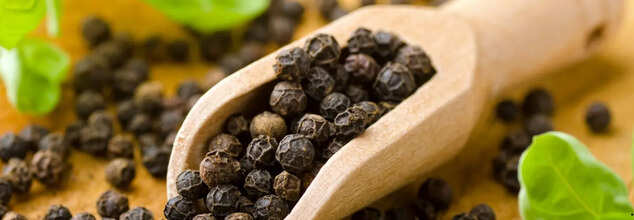
Credits: Canva
Why Limiting Sugar In The First 1,000 Days Of A Child Matters For Lifelong Health
From fruit snacks to juice boxes, sugary foods are deeply ingrained in modern childhood. We cannot think of our childhood without sweets, desserts and candies. This is also when many parents unknowingly introduce their children to excessive sugar early on. They do not realize the long-term health implications it bears. However, thanks to the emerging research, it has now brought into light that the first 1,000 days of life, starting from conception, are crucial in shaping a child's health, including their risk for chronic diseases like diabetes and hypertension.
What Is The Link Between Early Sugar Intake And Chronic Disease
Last year, in journal Science was published that analyzed historical data from World War II-era Britain. This was when sugar was rationed. It was led by economist Tadeja Gracner, the research found that individuals who experienced early-life sugar restrictions had significantly lower rates of Type 2 diabetes and hypertension later in life.
Using the data from UK Biobank, researchers have examined the health records of over 60,000 individuals born between 1951 and 1956. The findings revealed:
- A 35% lower risk of Type 2 diabetes and a delay in disease onset by four years.
- A 20% lower risk of hypertension and a delay in disease onset by two years.
Higher sugar consumption post-rationing was linked to increased inflammation, poor metabolic health, and a greater likelihood of conditions like high cholesterol and arthritis.
Why Is Early Nutrition Important For Health?
A pediatric obesity specialist at Cincinnati Children’s Hospital, Robert Seigel emphasized that nutrition in the womb and early childhood plays a defining role in long term health. “You are not only what you eat, you are what your mom eats,” he explains. Early exposure to high sugar levels can influence taste preference, it makes children more likely to crave and consume sugary foods throughout life.
Gracner's research also supports this and suggests that individuals who consumed less sugar in early childhood may develop a reduced preference for sweetness. It could potentially lower their lifelong sugar intake.
What Is The Impact Of Sugar?
As per the American Academy of Pediatrics (AAP) and Mayo Clinic has highlighted the importance of avoiding added sugars, which are also commonly found in processed foods such as pasta sauces, crackers, and packaged drinks. Unlike naturally occurring sugars in fruits and dairy, added sugars like high fructose corn syrup, sucrose and glucose are also linked to weight gain, metabolic issues and disorders, and insulin resistance.
The AAP also notes that sugar constitutes around 17% of children's daily diets, which means sugar drink accounts for half of that intake. In order to promote better health among children, AAP recommended:
- No added sugar for children under 2 years.
- Less than 25 grams (about 6 teaspoons) of added sugar per day for children over 2.
Following the National Dietary Guidelines, which advise keeping added sugar intake below 10% of total daily calories at any age.
There is also a "95210" guideline that is developed by Dr Alicia Hartung, also recommended by Pediatric Seven Abelowitz that provides practical steps for parents:
- 9 hours of sleep per night
- 5 servings of fruits and vegetables daily
- 2 hours or less of screen time
- 1 hour of physical activity
- 0 sugary drinks

Image Credits: Canva
Can Homeopathy Really Detox Your Body? Expert Weigh In
Detoxification is the body's natural cleansing process of eliminating dangerous toxins that have built up from environmental toxins, poor diets, and stress. It cleanses the blood, liver, and other organs involved in the process of waste elimination. While mainstream detoxing processes usually consist of rigid diets, fasting, or colon cleanses, homeopathy offers a softer and holistic means of stimulating the body's own cleansing processes.
The new lifestyle has contributed immensely to changed eating patterns, resulting in increased chronic conditions of obesity, diabetes, and heart diseases. Toxins penetrate the body in the form of processed foods, alcohol, pollution, and stress. They become part of the blood and lymphatic system, slowly accumulating in essential organs such as the liver, kidneys, and intestines. These toxins, if not efficiently eliminated, can result in fatigue, gastrointestinal discomfort, skin ailments, and compromised immunity.
The liver is the primary organ for detoxification. Through the process of metabolism, the Phase 1 detoxification of the liver (also referred to as the P450 enzyme system) creates free radicals, which can cause tissue damage if there are not adequate antioxidants within the body. This is why dietary or supplement replenishment of antioxidants is important in order to detoxify efficiently.
Can Homeopathy Naturally Detox?
As opposed to traditional detox routines that are hard on the body, homeopathy acts on the cellular level to complement the body's inherent capacity for detoxification. According to Dr. Manju Singh, Homeopathy expert, homeopathy does not cleanse but instead 'drains' toxins, and that it activates the body's defense mechanisms, allowing toxins to be removed effectively without an interruption in overall health.
Homeopathic Remedies for Detoxification
Nux Vomica: Perfect for detoxifying after binge drinking, caffeine, or fast foods. Alleviates bloating, nausea, and stomach discomfort.
Lycopodium: Facilitates liver function and eliminates digestive problems such as gas, bloating, and acidity.
Sulphur: Famous for purifying the skin, it clears acne, eczema, and rashes due to toxin accumulation.
Berberis Vulgaris: Maintains kidney health by facilitating the elimination of toxins through urine, keeping kidney-related diseases at bay.
Chelidonium Majus: Supports liver functioning, digestion, and fat digestion without any effort.
Why Lifestyle Plays an Important Role in Detoxification?
Though homeopathy is a strong supporter of detoxification, healthy lifestyle also plays a similar role. The inclusion of the following habits can make the body most effective in natural toxin removal:
1. Hydration
Adequate intake of water is essential to flush out toxins in the form of urine and sweat. Herbal teas and fresh juices can also aid in hydration and detoxification.
2. Nutrient-Dense Diet
A well-balanced diet that includes plenty of fruits, vegetables, whole grains, and fiber feeds the body while encouraging toxin elimination. Cutting down on processed foods, alcohol, and excessive caffeine consumption further aids detoxification.
3. Consistent Physical Exercise
Exercise increases blood circulation, strengthens digestion, and activates the lymphatic system, which helps remove toxins through sweat and breath.
4. Stress Control
Ongoing stress may lead to increased toxin accumulation in the body. Stress levels can be controlled through deep breathing techniques, meditation, and yoga, which further benefit overall health.
5. Reducing Chemical Exposure
Restricting exposure to environmental toxins, including air pollution, artificial cleaning agents, and pesticides, reduces the toxin load on the body.
Homeopathy may provide a holistic and natural means of detoxification, removing toxins from the body without harm while restoring equilibrium. A visit to a qualified homeopathic practitioner guarantees a personalized detox program suited to individual needs, making the process safe, effective, and sustainable.
Dr. Manju Singh, B.H.M.S., Homeopathy Consultant and senior homeopathic medical officer at SBL Global, India

Credit: Canva
How To Use Black Pepper For Weight Loss
Spices are the heart of Indian cuisine, adding depth and distinct flavors to dishes. Besides that, they are also hold strong medicinal value. One such widely used spice is black pepper, also known as Kali mirch. Its bold aroma and sharp taste can instantly elevate any dish, making it an essential ingredient in Indian cooking. But beyond enhancing flavor, this common kitchen staple is also a natural fat burner.
How Does Balck Pepper Aid Weight Loss?
Black pepper contains piperine, a bioactive compound known for boosting metabolism and preventing fat accumulation in the body. Additionally, it enhances the concentration of good cholesterol, contributing to better heart health.This spice is classified as a thermogenic food, meaning it helps accelerate metabolic processes, allowing the body to burn calories more efficiently. Furthermore, studies suggest that consuming spicy foods can increase satiety, making you feel full even after consuming smaller portions—an important factor in weight management.
Ways To Use Black Pepper For Weight Loss
Several studies highlight the benefits of incorporating black pepper into the daily diet for effective weight loss. While this spice is generally safe for consumption, moderation is key. Experts recommend limiting intake to 1-2 teaspoons per day, as excessive consumption may lead to digestive issues.Here are some easy and effective ways to include black pepper in your diet:
1. Black Pepper Tea
For those who love tea, adding black pepper can transform it into a **weight-loss-friendly beverage**.
How to prepare
- Boil one cup of water in a pan.
- Add one inch of crushed ginger and let it simmer for five minutes.
- Strain into a cup and steep a green tea bag in it.
- Add half a teaspoon of black pepper, stir well, and drink.
2. Chewing Raw Black Pepper
If you can tolerate its strong taste, chewing 2-3 black peppercorns on an empty stomach every morning can be beneficial.
3. Black Pepper and Honey Drink
A simple detox drink, this combination can support digestion and metabolism.
How to prepare
- Boil one cup of water and let it cool slightly.
- Stir in one teaspoon of honey and half a teaspoon of freshly ground black pepper.
- Drink it warm for best results.
4. Black Pepper Oil
Black pepper oil, when consumed in small amounts, may aid in weight loss.
How to use:
- Purchase 100% pure black pepper oil from a reliable pharmacy.
- Add one drop to a glass of water, mix well, and drink before breakfast.
5. Black Pepper in Juices
Enhance the nutritional value of fruit and vegetable juices by adding black pepper. Simply mix half a teaspoon into your juice before consumption.
Best Time to Consume Black Pepper
For maximum benefits, black pepper should be consumed **on an empty stomach**, preferably before breakfast. This helps stimulate digestion and optimize metabolic activity throughout the day.
Are There Any Side Effects Of Using Black Pepper?
While black pepper is a powerhouse of health benefits, excessive intake can lead to:
- Gastric issues and stomach upset
- Irritation of the intestinal lining
- Increased risk of miscarriage in pregnant women (should be avoided during pregnancy)

Image Credit: Canva
Most People Overlook These 4 Essential Times to Drink Water Every Day
Did you know the timing of when you drink water is as important as the amount of water consumed? While many individuals are busy making sure they reach their daily quota, not many are aware that consuming water at certain times will get the best out of it. Whether boosting your metabolism first thing in the morning or aiding digestion prior to meals, water helps to keep your body in top condition. Curious when you need to be drinking this life-sustaining potion?
Hydration is basic to overall well-being, but many pay more attention to the amount of water they consume than to when they consume it. All cells, tissues, and organs in the body need water to work correctly. Hydration affects digestion, cardiovascular health, brain function, and even spinal health. Yet, drinking water in the most effective way possible is as essential as drinking enough of it. Rather than swallowing several glasses at one time, distributing water consumption strategically throughout the day can yield the greatest rewards.
Based on National Academies of Sciences, Engineering, and Medicine hydration recommendations, men need a minimum of 13 (8 oz) cups of fluid every day, while women need at least 9 (8 oz) cups or more. Yet these amounts vary depending on the level of activity, climate, and personal health status. To tap into the full potential of hydration, let's discuss four critical times to consume water that most people unknowingly neglect.
1. After Waking Up
Your body dehydrates while you are asleep, making you slightly dehydrated in the morning. Drinking water when you wake up in the morning rehydrates your body, cleanses you of toxins, and gets your metabolism going. It also gets internal organs to work, activating them for the day. Hydration in the morning has been proven to increase brain function, which enhances memory and concentration. Rather than for coffee, use your hand to stretch for lukewarm lemon water to awaken digestion and trigger detoxification.
2. Pre-meal
Having a glass of water approximately 30 minutes prior to eating can help digestion by conditioning the stomach to digest food better. Adequate hydration assists the body in secreting digestive juices and enzymes required to digest nutrients. Nevertheless, do not drink excessive water close to or immediately after meals, as it could weaken gastric acids and slow down digestion. Instead, drink water at least an hour after meals to facilitate nutrient absorption and avoid bloating.
3. Before a Bath
Interestingly enough, having a glass of water before a bath can have heart benefits. Exposing the body to warm water in a bath or shower may slightly reduce blood pressure by causing blood vessels to dilate. Pre-hydration ensures there is good circulation and avoids dizziness or dramatic drops in blood pressure. Such a simple habit can be quite useful for hypertensive patients or those who are prone to becoming dizzy after scalding showers.
4. Before Sleep
Hydration does not end at bedtime. Drinking too much water just before sleeping might cause you to wake up during the night, but a minimal glass of water an hour or so before sleeping helps maintain hydration and aids in overnight body functions. This is particularly significant for those who suffer from dry mouth, night sweats, or leg cramps. Dehydration during nighttime can also be prevented through good nighttime hydration that aids in muscle repair and improves the body's ability to regulate temperature while sleeping.
How to Develop a Routine of Drinking Water Consistently?
It can be difficult to drink enough water every day, but having a systematic routine simplifies the task. The following are some expert-recommended tips to ensure that you remain hydrated consistently:
Stick to a Water Routine
If you find it hard to drink sufficient water, a basic routine can work:
Early morning – A glass of water in the morning before breakfast is the first step towards staying hydrated.
After meals – An hour after meals, drinking water aids in digestion.
Mid-afternoon – When you feel your energy flagging, drink water rather than relying on caffeine.
Before bed – A small glass or sip before bedtime keeps you hydrated.
Whenever you sweat – Drink before and after exercising, being out in the heat, or other activities that cause you to sweat.
Use a Water Bottle for Easy Tracking
Rather than measuring the number of cups, monitor your consumption by fixing a target using the number of bottles you need to consume in a day. For example, refilling a 500 ml bottle four times will provide a good amount of water.
Make Water More Palatable
Plain water is monotonous to many, so try alternatives to make it tastier:
- Include wedges of citrus fruits like lemon or orange.
- Use infused water with cucumber, mint, or berries.
- Choose room temperature or cold water depending on your preference.
- Use filtered water if tap water tastes unpleasant.
Maintain a Visual Reminder
Having a glass of water beside your bed or on your workspace acts as a constant reminder to drink. Small environmental modifications can support hydration habits easily.
One of the easiest yet most potent things you can do for your health is to drink water. Although it's important to prioritize the overall intake of water taken in a day, the when and not the how much makes a big difference in getting the most out of it.
© 2024 Bennett, Coleman & Company Limited

